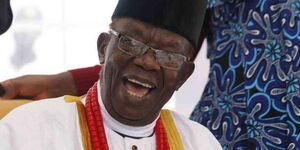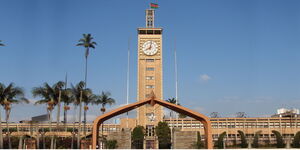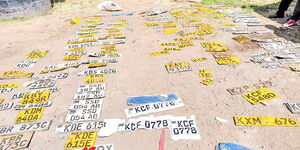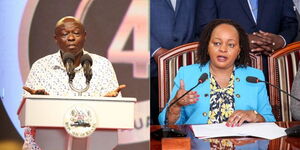The High Court has suspended the enforcement of the Computer Misuse and Cybercrimes (Amendment) Act, 2024, signed into law last week.
Justice Lawrence Mugambi issued the conservatory orders on Wednesday, October 22, effectively stopping the enforcement, implementation and operation of Section 27(1)(b), (c), and (2) of the amended Act. These were the sections of the Computer Misuse and Cybercrimes Act that received changes in the bill introduced to Parliament in August 2024.
The judge decided to issue conservatory orders pending the hearing of a petition by one Reuben Kigame and the Kenya Human Rights Commission (KHRC), who moved to court a day earlier to challenge the Act. The two argue that the amendments will significantly curtail digital freedom and freedom of expression in Kenya.
"Pending the hearing and determination of this application, a conservatory order is hereby issued suspending the enforcement, implementation and operation of Section 27(1)(b), (c), and (2) of the Computer Misuse and Cybercrimes (Amendment) Act, 2024," the ruling stated.
The petition was certified as urgent and argued that the provisions of the act posed a threat to freedom of speech.
Further, the petitioners argued that several sections of the amended Act grant government agencies unchecked powers to monitor, access, and restrict online accounts without judicial oversight, contravening Articles 31, 33, 34, 35, and 36 of the Constitution, which safeguard privacy, freedom of expression, and media independence.
In the interim ruling, Justice Mugambi directed that the application and its accompanying submissions be served physically within three days and a return of service be filed with the court.
The court further directed that responses and submissions to the application be filed and served within seven days of service.
Further directions by the court are set to be issued on November 5, where the matter is expected to be subjected to a full hearing or other procedural determinations.
The National Assembly published the Computer Misuse and Cybercrimes (Amendment) Bill, 2024, on August 9, 2024.
The Bill underwent public participation and review by the Departmental Committee on Communication, Information, and Innovation, with stakeholder inputs from civil society and industry leaders.
This new amendment of the Computer Misuse and Cybercrimes Act, Cap 79C, prohibits the use of electronic media to promote extremism and extreme religious and cultic practices.
Under the new law, computer misuse has been expanded to mean any unauthorised system access or modification, and acts of cybercrime will include ICT-enabled offences targeting networks or data.












